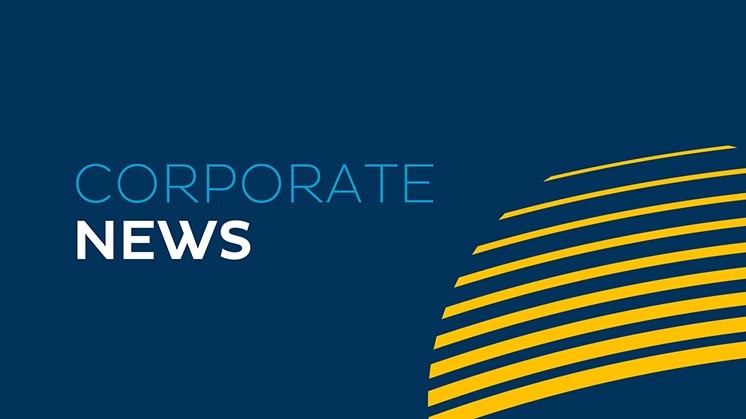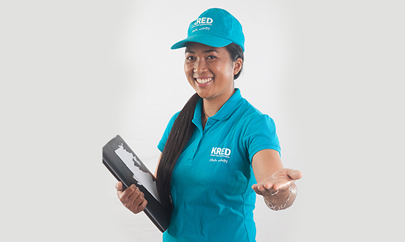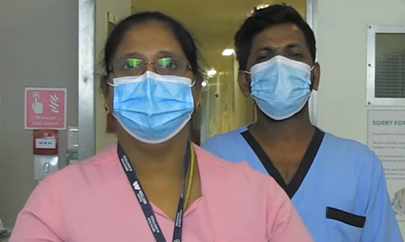CIEL Group

CIEL’S DIVERSIFIED PORTFOLIO AND GEOGRAPHIC FOOTPRINT CONTINUE TO MITIGATE THE IMPACT OF THE GLOBAL PANDEMIC ON ITS FINANCIAL PERFORMANCE
A full year now has elapsed since the start of the global COVID-19 pandemic which caused recurring periods of lockdowns as well as travel and operating restrictions in Mauritius and abroad. In this year like no other, CIEL Group’s results continue to show resilience. The particularly good performance of the Textile, Healthcare and Agro & Property clusters reflect the benefits of the Group’s diversified investment portfolio and geographical footprint.
- Group revenue stood at MUR 13.49bn, a 27.1% decrease compared to the prior year that can be attributed to the extremely low level of activity in the Hotels & Resorts cluster. Revenue growth in the Healthcare and Finance clusters was encouraging at respectively 16.2% and 6.4% compared to prior year.
- Earnings before Interests, Taxation, Depreciation, Amortisation and Reorganisation costs (“EBITDA”) was MUR 1.48bn, a 48.1% decrease versus the same period last year that masks the significantly higher EBITDA achieved by the Textile and Healthcare clusters.
- While all other clusters posted profits for the period, the underperformance of the Hotels & Resorts segment led the Group to post losses from continuing operations of MUR 397M. After accounting for the loss from SUN Limited’s discontinued operations in the Maldives, Group loss for the period amounted to MUR 768M.
- Group Free Cash Flow(‘FCF’) was MUR 1.3bn in the period under review – down MUR 283M from prior year due to the absence of revenue streams in the Hotels & Resorts cluster weighing on Group cash generation. All the other clusters posted higher FCF reflecting efficient cash management and tight controls over working capital and capital expenditure.
- Down by MUR 500M to MUR 16.4bn as at 31 March 2021, the Group further strengthened its financial structure by reducing net interest-bearing debt from MUR 16.9bn as at 30 June 2020. Most of the interest-bearing debt comes from the Hotels and Resorts cluster and is not guaranteed by CIEL nor any other Group companies. The gearing ratio improved to 47.1%.
CLUSTER REVIEW
CIEL Textile posts excellent results with a 46.2% increase in EBITDA in the first nine months
This demonstrates the Group’s operating leverage despite a 13.8% decline in revenue. Strong demand in the Knits and Knitwear segments, partial recovery in the Woven segment (shirts) with increasing orders from North American clients and improved operational efficiencies boosted the cluster’s performance in the third quarter. This led to a profit after tax of MUR 399M in the first nine months compared to MUR 162M in the prior year.
Pandemic-related provisions impacted the financial performance of the Finance cluster
While the Finance cluster posted a 6.3% increase in revenue in the first nine months to MUR 2.70bn, the results were impacted by higher pandemic-related risk provisions taken across the cluster’s banking activities in Mauritius and Madagascar. As a result, profit after tax fell by 40.7% to MUR 339M in the first nine months.
The Healthcare cluster continues to serve as a key growth engine
The Healthcare cluster maintained its growth trajectory and delivered a 16.3% growth in revenue to MUR 2.38bn. The EBITDA improved by +63.9% to MUR 436M, leading to a 5.3 percentage point gain in the EBITDA margin to 18.3%. In the third quarter alone, EBITDA rose by 38.5% compared to the prior year, despite the lockdown in place during most of March 2021 in Mauritius which affected the ability of medical staff and patients to access the Group’s clinics.
Robust sugar operations and higher sales of land boost the results of the Agro & Property cluster
The Agro & Property cluster benefitted from a marked improvement across all sugar operations: Tanzania saw an increase in the average sugar price and higher production driven by a higher crushing rate while operations in Kenya benefited from better factory efficiency. In Mauritius, the competitiveness of Mauritian sugar was enhanced by the depreciation of the Mauritian rupee by about 20% against the Euro. These, together with higher sale of land at Anahita and Ferney, positively impacted the cluster’s performance and helped to mitigate the impact of the lack of tourism on the Property business. This led to a profit after tax of MUR 137M, significantly above the prior year level of MUR 35M.
The Hotels & Resorts cluster is set to refocus its energies and resources on its Mauritian properties
As part of its strategic plan, the Hotels & Resorts cluster finalised the sale of the Kanuhura Hotel & Resort in the Maldives on 3 May 2021. Pending the completion of this transaction, the resort’s results were classified under discontinued operations and a loss of MUR 370M was recognised in the period under review. The proceeds from the sale of Kanuhura should enable the Group to reduce its debt level. Given the extremely challenging environment in the tourism industry, the cluster posted losses from continuing operations amounting to MUR 1.37bn in the first nine months against a profit of MUR 200M in the comparative period.
OUTLOOK
At the time of writing, there remains significant uncertainties and challenges regarding the fourth quarter ending 30 June particularly with the resurgence of the pandemic in India and Madagascar. Yet CIEL is very encouraged by the agility and resilience demonstrated thus far. All clusters have proven their capacity to adjust and capture growth opportunities even in the most challenging environment ever. As the vaccination campaign progresses in Mauritius and with the Government’s intention to reopen borders at the earliest, the Hotels and Resorts cluster should be able to resume its operations in the near future. Owing to a renewed positioning and a focused sales approach, the Hotels & Resorts cluster will be in a financially healthier situation to gradually resume its positive contribution to CIEL’s results. In the meantime, CIEL is determined to maintain the strictest cost and cash discipline while making the most of its unique product and geographic mix as the global economic recovery gains traction.





